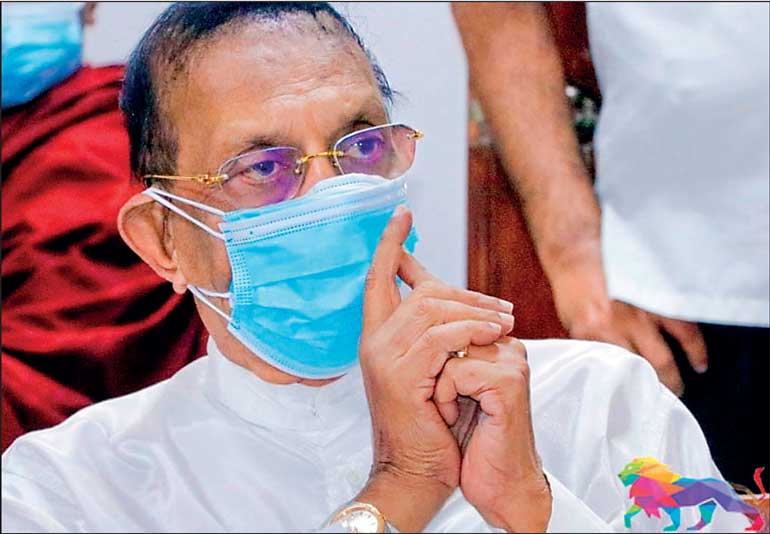Monday Feb 16, 2026
Monday Feb 16, 2026
Thursday, 4 November 2021 00:00 - - {{hitsCtrl.values.hits}}

Deshabandu Karu Jayasuriya
Following are remarks by Deshabandu Karu Jayasuriya at the inaugural meeting of the Coalition for National and Religious Reconciliation on Wednesday:
I am pleased to say that representatives of all religions and ethnicities, including the Maha Sangha are gathered here today. It is the wish of every Sri Lankan to live in a country that respects liberty, national and religious unity within a democratic framework. This is the stand we must pass on to our future generation.
Sri Lanka, which was a prosperous country prior to its independence, deteriorated rapidly thereafter. Our country had to face failed military coups, youth unrest and a civil war. We are a divided nation today. Our objective is to bring an end to this unfortunate situation. Our ethnicity and religion are not something we can claim. It depends on a number of factors including our place of birth and our parental heritage. Buddhists in particular can never be racists. In the Vassettha Sutta, the Buddha stated that mankind is one race. Then we must respect the noble truth of Buddha’s teachings. If there are people who hold racist views, the Maha Sangha should educate them. Is it necessary to divide ourselves according to ethnicity and destroy a country?
Conflicts between races and religions have had a decisive impact on the serious setbacks in the social, economic and political spheres as well as the breakdown of people’s lives in Sri Lanka since independence. Later on, such issues led to the creation of a number of serious crises in the country and also led to a protracted civil war which destroyed the lives of many Sri Lankans. It also had a devastating effect on the overall economy of this country and the image of the nation.
One of the main factors cited by social and political analysts as contributing to the country’s demise was the lack of a proper discourse in society on the process of nation building in the pre-independence era and the failure to reach a consensus, as well systematic actions taken by some parties to create antagonisms between races and religions due to their need to secure political power in the
post-independence era.
Attention has also been drawn to the fact that informed and influential groups in Sri Lanka in particular have not been widely involved in these matters. Unfortunately, even today, many factors are being created to pave the way for such conditions in the country.
Special attention has been paid to the situation in the aftermath of the Easter attacks, with various suspicions and grievances between the Sinhalese and Muslim communities, the Buddhist community and the Catholic and Christian communities and among the Sinhalese, Tamil and Muslim communities as a whole. This situation will be decisively detrimental to the future wellbeing of the country. As responsible organisations and citizens, we need to focus on this and intervene to prevent such an unfortunate situation from occurring in the country. This has become our primary and foremost responsibility.
Our intention as the Coalition for National and Religious Reconciliation is to contribute to the creation of a broader dialogue among religious institutions and civil society organisations that are regarded as two of the most influential groups in Sri Lanka. At the same time, it is an attempt to inform all citizens of this responsibility. It is to highlight the importance of working responsibly by all people in the name of national and religious reconciliation. It is our fervent belief that this responsibility belongs to all of us.
After taking the advice of the distinguished participants who are gathered here today, we will travel across the island to speak on national and religious unity. This endeavour will require your approval and participation. Let us unite now to create a prosperous country.